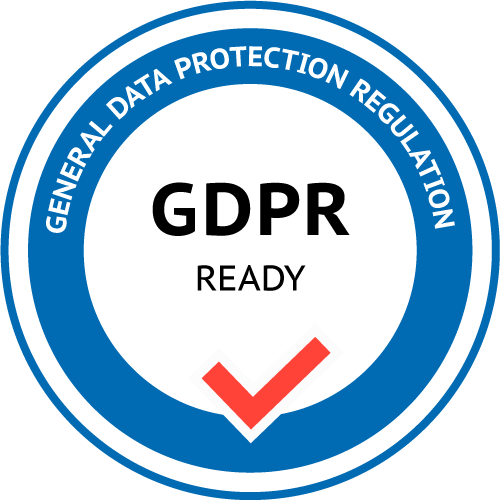In accounting, the principles of integrity and ethics serve as pillars that uphold the trust and transparency essential for the functioning of financial markets and institutions.
Accounting integrity refers to the accuracy and honesty in financial reporting and record-keeping, ensuring that stakeholders’ can rely on financial statements and analyses to make informed decisions. Ethics encompasses the moral principles that guide the behavior and decisions of individuals and organizations in the accounting profession.
The correlation between accounting integrity and ethics is undeniable; integrity serves as the practical application of ethical values in the accounting process, ensuring adherence to laws, regulations, and standards.
In today’s post, we’ll dive deeper into the concept of accounting integrity and ethics, exploring their importance and ways to uphold them in the workplace.
The Importance of Accounting Integrity and Ethics
The significance of accounting integrity and ethics goes far beyond maintaining compliance with regulations and standards; they are essential for creating a sustainable financial environment that benefits all stakeholders.
Accounting integrity ensures that financial information is reliable, accurate, and complete, providing a clear picture of the company’s financial performance. It promotes ethical behavior within an organization and helps prevent fraudulent activities like embezzlement or misappropriation of company funds. It also helps in identifying any red flags or irregularities that may arise during the accounting process, and ultimately leads to better decision-making and risk management.
Let’s summarize 7 key reasons why integrity and ethics matter in accounting:
- Building trust with stakeholders
- Enhancing decision-making
- Compliance with regulations
- Preventing financial fraud
- Sustaining economic health
- Promoting professionalism
- Enhancing corporate governance
1) Building Trust with Stakeholders
Accounting integrity ensures that all financial information is reported accurately and truthfully, fostering trust among investors, creditors, employees, and other stakeholders. This trust is crucial for the health and stability of financial markets and for attracting and maintaining investment.
2) Enhancing Decision-Making
Ethical accounting practices provide reliable data that decision-makers rely on to formulate strategies and policies. Without integrity and ethical standards, the information could be misleading, leading to poor decision-making that could have detrimental effects on company operations and financial health.
3) Compliance with Regulations
Ethics and integrity in accounting help ensure compliance with legal and regulatory requirements. Financial scandals and irregularities often lead to heavy penalties and other legal consequences for businesses. Upholding high ethical standards can prevent such outcomes and protect the organization from reputational harm.
4) Preventing Financial Fraud
A commitment to ethical behavior and integrity in accounting practices is a deterrent to financial fraud and corruption. By adhering to ethical standards, accountants can help prevent the manipulation of financial information, which protects the organization and its stakeholders from potential financial losses and scandals.
5) Sustaining Economic Health
The accuracy of financial reporting influenced by ethical accounting practices impacts not just individual businesses but the economy at large. Reliable financial reporting helps maintain economic stability and informs sound economic policy and development.
6) Promoting Professionalism
Ethical standards in accounting promote a culture of professionalism. They guide accountants in managing conflicts of interest, maintaining confidentiality, and undertaking their duties responsibly. This professionalism is vital for the overall integrity of the accounting profession.
7) Enhancing Corporate Governance
Strong ethical and integrity principles are key components of effective corporate governance. They help ensure that management acts in the best interests of the shareholders and the company, promoting fairness, transparency, and accountability in all aspects of corporate functioning.
Key Principles of Accounting Integrity and Ethics
To uphold and promote accounting integrity and ethics within the organization, it is necessary to understand and implement several key principles. These principles not only guide accountants and financial professionals in their daily activities but also serve as a foundation for establishing a sound ethical environment:
- Honesty and truthfulness in all financial transactions
- Objectivity and impartiality in reporting financial information
- Confidentiality of sensitive financial data
- Full disclosure of all relevant financial information
- Compliance with relevant laws and regulations
Ethical accounting is governed by these fundamental principles, which ensure professionalism and fairness in financial reporting. Let’s take a deeper look into each:
Transparency
Transparency in accounting means providing all financial information in a clear, comprehensible, and accessible manner. Financial reports should offer a transparent, comprehensive view of the business’s financial position and performance, involving full disclosure that neither misleads nor withholds information from stakeholders. This includes revealing all relevant financial information, potential risks, and uncertainties.
Objectivity
Accountants must maintain impartiality in their evaluations and decision-making processes. Objectivity is crucial to avoid conflicts of interest and ensures that financial reporting is based on accurate and verified data. Decisions and reports should be free from personal biases, underlining the necessity for professional skepticism. Practitioners must base their actions on factual evidence and adhere strictly to established standards, not personal preferences or interests.
Confidentiality
Accountants have access to sensitive information and must maintain its confidentiality unless disclosure is mandated by law. Safeguarding this information maintains trust and prevents data misuse, with exceptions allowed only for authorized or legal disclosures. Accountants must also avoid using confidential information for personal advantage.
Professional Competence
Accountants should continuously update their skills and knowledge to stay relevant and competent. This involves adhering to the latest laws, standards, and practices, and actively pursuing professional development. It includes maintaining and enhancing knowledge and skills across all technical areas of financial management, ensuring practitioners are fully capable of performing their duties accurately and ethically.
Integrity
Accountants are obligated to uphold principles of honesty and fairness in all professional duties, being straightforward and truthful in all business interactions. Integrity involves more than honesty; it also requires avoiding any form of communication that could be misleading or misunderstood. Accountants and financial officers must always present the financial situation truthfully, even if the information is unfavorable, avoiding actions that could mislead or deceive stakeholders.
Accuracy
Ensuring that financial records are accurate and free from errors is critical. This principle calls for detailed documentation and precise recording of transactions in accordance with established accounting standards and principles. Any errors, inaccuracies, or omissions should be promptly corrected to maintain the reliability of financial statements. This principle also underscores the importance of integrity in record-keeping and discourages any manipulation or falsification of data.
Consistency
Consistent application of accounting standards and policies is essential for the comparability of financial statements over time and across different organizations. This consistency aids stakeholders who rely on these statements for making informed decisions and helps prevent confusion or discrepancies between reports, promoting transparency in financial reporting.
Responsibility to Stakeholders
Accountants have a duty to various stakeholders—including shareholders, creditors, and regulatory authorities—to provide accurate and timely information that meets all legal and regulatory requirements. This duty entails acting in the best interests of stakeholders and ensuring that financial reports are reliable, transparent, and unbiased.
Lawfulness
Adherence to all applicable laws, regulations, and standards is crucial. Accountants must keep abreast of changes in accounting laws and practices and ensure compliance. This not only protects the organization from potential legal consequences but also builds trust and credibility with stakeholders.
Common Ethical Challenges in Accounting
Despite the existence of rigorous ethical principles, accountants often encounter several ethical challenges that can complicate their decision-making processes:
- Conflicts of interest: Accountants may face situations where personal or familial interests conflict with their professional responsibilities. This could manifest as having financial stakes in a business that is a client of the firm, or personal relationships with clients that might influence impartial judgment.
- Financial pressure: Accountants are sometimes pressured by management or other stakeholders to alter financial results. This pressure can range from subtle, such as implied expectations for favorable outcomes, to overt demands, like direct requests to manipulate earnings to meet targets.
- Regulatory navigation: Navigating the complexity of laws and accounting standards, especially in multinational contexts, presents significant challenges. Accountants must maintain compliance amidst varying standards across different jurisdictions, which can be particularly challenging.
- Client confidentiality: Maintaining client confidentiality while adhering to legal and ethical reporting requirements presents a delicate balance. Accountants must ensure they do not improperly disclose sensitive information, yet they must also comply with laws requiring the disclosure of certain information, such as activities related to financial crimes.
- Integrity of information: With access to the inner financial workings of an organization, it is paramount for accountants to ensure the integrity of the information they report, despite any personal or external biases. They must resist any temptation to alter or omit information for personal gain or to favor others.
- Technological challenges: With the rise of digital technologies, accountants face the challenge of ensuring the security and accuracy of financial data in digital formats. This includes protecting against cyber threats, ensuring proper data management, and maintaining the integrity of financial reports generated by automated systems.
Accounting Integrity and Ethics FAQs
What are the consequences of unethical accounting?
Unethical accounting can lead to legal penalties, loss of reputation, and financial harm to the company and its stakeholders. Additionally, it can result in personal consequences for the individuals involved, such as fines, loss of professional licenses, and possible criminal charges.
How can accountants maintain their integrity?
Accountants must adhere to ethical principles, continuously update their skills and knowledge, avoid conflicts of interest, and uphold confidentiality. They should also promote transparency and honesty in financial reporting and remain compliant with all laws and regulations.
What should an accountant do when faced with an ethical dilemma?
Accountants should seek guidance from their professional code of ethics, consult with colleagues or superiors, and consider the potential consequences of each possible action. They may also need to disclose the dilemma to appropriate authorities or stakeholders if necessary. The key is to act in accordance with ethical principles and strive for the best possible outcome.
How can organizations promote ethical behavior in accounting?
Organizations can establish a strong ethical culture by clearly communicating expectations and consequences, providing adequate training on ethics and laws, enforcing accountability, and promoting transparency in financial reporting. It is also crucial to encourage open communication and foster an environment where employees feel comfortable reporting any unethical behaviors they encounter. Additionally, having an independent internal audit function can help identify and address any ethical issues within the organization.
What are some resources for accountants to learn more about ethical principles?
Accounting professional organizations, such as the American Institute of Certified Public Accountants (AICPA) and the Association of Chartered Certified Accountants (ACCA), provide guidance and resources on ethical principles for accountants. Many universities and colleges offer courses or workshops on ethics in accounting as part of their accounting curriculum. Reading industry publications and attending conferences or seminars focused on accounting ethics can also be beneficial.











